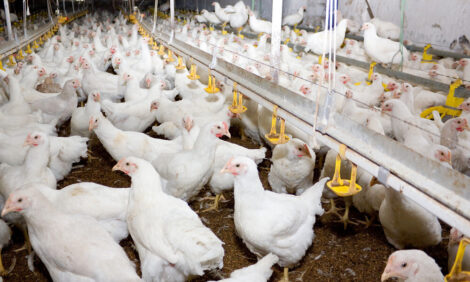



Punitive Trade Barriers Hit European Exports
ANALYSIS - Significant trade and investment barriers are being built by Europe’s leading trading partners.And these barriers are often difficult to overcome, according to a new report from the European Commission.
The report that looks at the trading relationship with leading trading partners - Argentina, Brazil, China, India, Japan, Russia, and the United States – shows that they maintain a variety of barriers that significantly hinder international trade and investment opportunities of EU companies despite the prospects of a global economic recovery.
The report lists all major obstacles identified in the EU's priority markets.
With seven cases mentioned in the report, Russia tops the list. China follows closely with six cases.
The report also outlines four barriers both for India and Brazil and three cases respectively for Argentina and the US.
The fifth edition of the EU’s Trade and Investment Barriers Report (TIBR) shows that with the current overall challenging economic uncertainty and considerable political tensions, there is a great risk that many of these barriers will persist and new barriers will be established.
This, the report says, will be to the detriment of all.
The report calls for more determination at the political level as well as an intensified and active implementation of the EU Market Access Strategy to remove barriers.
"After years of turmoil, the global economy is improving. In these conditions, it's disappointing to see so many obstacles to trade and investment persist,” said EU Trade Commissioner Cecilia Malmström.
“Now more than ever, determination is needed to level the playing field and get rid of barriers,"
Barriers identified in the report include requirements to use locally-produced goods, or to be based in a country as a condition to obtain certain advantages.
Discriminatory taxes and subsidies for domestic producers in Brazil or a new law in Russia requiring personal data to be stored on a local server are some examples of highly trade-distortive practices, the report says.
“This trend is a concern in a wider perspective, as several other countries – including China - have adopted or are contemplating similar measures,” the Commission report says.
Among the barriers, the report identifies a high number of sanitary and food-related barriers that persist in Brazil, China, the US and Russia, and highlights intellectual property rights issues in China and the US.
The report says that Russia has incorrectly implemented its WTO bound tariffs for many products, including paper, appliances and agricultural products such as palm oil and on 31 October last year, the EU launched a request for WTO Dispute Settlement consultations.
The Commission report says that many of the sanitary and phytosanitary issues with Russia remain.
On 8 April last year, the EU requested WTO Dispute Settlement consultations with Russia regarding import restrictions against live pigs, pork and certain pig products originating in the EU, due to the incidence of African swine fever in limited areas in Lithuania and Poland close to the border with Belarus.
The report says: “Consultations did not bring any result and a WTO Dispute Settlement panel was established on 22 July 2014.”
A ban on the export of potatoes and other plants has been in place since 1 July 2013 while new issues include a ban on beef trimmings from the EU since 27 June 2014, a ban on fruits and vegetables from Poland (affecting apples in particular) introduced on 1 August 2014 and a ban on meat meals, offal and fat from the EU since 22 October 2014.
On 7 August last year, Russia also decreed a ban on agricultural products and foodstuffs from certain countries – including EU Member States – which have adopted sanctions against Russia over the crisis in Ukraine.
These products cover almost all meat products (beef meat, pig meat, poultry, and certain prepared meat products), milk and dairy products, fruits and vegetables, as well as fish and crustaceans. Some processed agricultural products are also banned.
In Brazil, the report says that there has been some progress over sanitary and phytosanitary measures.
But is says that there has been insufficient progress with regard to imports of dairy, pork and beef from the EU into Brazil.
The competent Brazilian authority performs three to five audits each year and has started audits in some EU countries, but there is a backlog related to 50 applications submitted by EU countries which the Commission report says is “the main concern”.
Overall, Brazil still has a lengthy, burdensome and unpredictable SPS procedure to allow imports from EU Member States.
In 2014, Brazil announced new legislation and the EU made concrete suggestions to streamline import procedures.
“Brazil constitutes an important alternative market further to the ban imposed by Russia on EU exports of agricultural products and foodstuffs,” the report says.
“With regard to certain import restrictions on EU beef related to Bovine Spongiform Encephalopathy (BSE), Brazil has changed its import requirements, but did not yet fully align them with the international standard of the OIE (World Organisation for Animal Health).”
In Argentina, the requirement to fill out a 'sworn prior importer declaration (DJAI)' for all imports remains a major challenge for EU exporters the report says.
The World Trade Organisation Dispute Settlement Appellate Body ruled on the DJAI dispute as well as a number of other unofficial import restrictive measures such as import balancing requirements on 15 January 2015. The Appellate Body confirmed the previous Panel ruling which had found that Argentina's administration of the DJAI breaches WTO law.
In China, EU companies are facing many Sanitary and Phytosanitary (SPS)-related import measures.
The report calls for the existing ban on EU beef and sheep meat imports to be lifted and also demands that international standards should be accepted, over issues such as food safety and animal health.
Since August 2013, India has changed the interpretation and enforcement of the 2011 Food Safety Standards Regulations with reference to labelling and packaging, adopting a more restrictive approach for the use of stickers on packaging,.
This the Commission report says triggers “a serious disruption in the trade of foodstuffs”.
For Japan, negotiations are continuing for a comprehensive Free Trade Agreement, which would lift all barriers.
On some of these barriers, such as for organic food and liquor wholesale licensing, Japan has already complied with the commitments it took during the preparatory phase before to the launch of the FTA negotiations
There are still a multitude of sanitary and phytosanitary barriers in the US.
Major EU concerns remain with regard to US import restrictions on sheep and goat meat as well as egg products.
EU applications to export products of animal origin, such as beef, certain dairy products, live bivalve molluscs, as well as plant products such as apples and pears, also face long delays.
The Commission report hopes that the TTIP negotiations will offer the opportunity to settle these issues.








